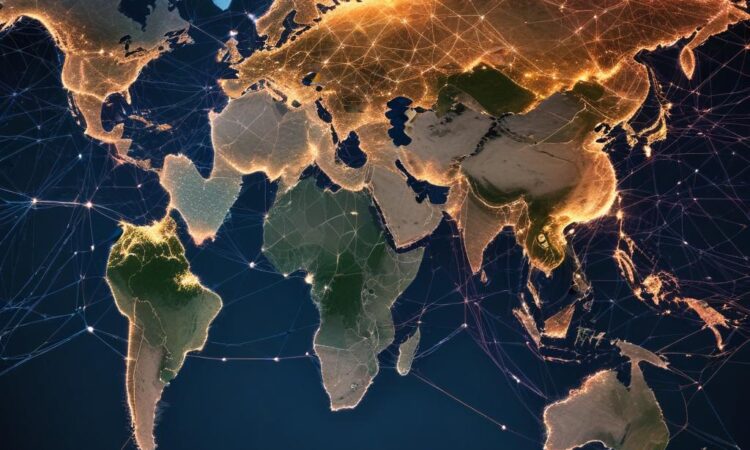How the World Responds to Trump’s Tariffs is What Matters Next
The imposition of tariffs by the Trump administration sent shockwaves through the global economy, triggering anxieties about potential trade wars and their cascading effects. While the immediate impact was felt in specific sectors and markets, the crucial determinant of the long-term consequences lies not in the tariffs themselves, but in how other nations choose to respond. Retaliatory taxes and trade restrictions imposed by other countries could plunge global trade into uncharted territory, with unpredictable and potentially devastating ramifications.
The initial reaction to Trump’s tariffs varied widely. Some countries absorbed the blow, adjusting their strategies to mitigate the immediate impact on their domestic industries. Others, however, opted for direct confrontation, implementing their own tariffs on American goods in a tit-for-tat escalation. This retaliatory behavior quickly transformed isolated trade disputes into a broader, more complex web of economic tensions.
The unpredictability of this situation stems from the intricate interconnectedness of the global economy. Trade isn’t a simple exchange; it’s a multilayered system of supply chains, manufacturing networks, and financial flows. Disrupting one part of this intricate system can have unforeseen knock-on effects, cascading through various industries and regions.
For example, a tariff on steel imported from the US might force a European manufacturer to source steel from elsewhere, potentially increasing its costs and affecting its competitiveness. This, in turn, could lead to job losses in the European steel industry, impacting consumer spending and overall economic growth. The ripple effect extends beyond the immediate players, affecting suppliers, distributors, and consumers across the globe.
Furthermore, the retaliatory measures aren’t limited to tariffs alone. Countries may resort to other non-tariff barriers, such as stricter regulations, bureaucratic hurdles, and even outright bans on certain goods. These measures can be equally damaging, hindering trade and creating uncertainty for businesses that operate across international borders.
The uncertainty created by these trade disputes has a significant impact on investor confidence. Businesses hesitate to make long-term investments when faced with the prospect of fluctuating tariffs and unpredictable trade policies. This hesitancy can lead to decreased capital expenditures, slowing economic growth and potentially triggering a global recession.
The potential for a global trade war is a serious concern. A full-blown trade war would involve widespread implementation of tariffs and other trade restrictions, leading to a significant contraction in global trade volumes. The consequences would be particularly severe for developing countries heavily reliant on exports, as they would face reduced access to global markets and potentially devastating economic consequences.
Beyond the economic implications, the geopolitical ramifications are equally concerning. Escalating trade tensions can strain diplomatic relationships, creating a climate of mistrust and animosity between nations. This erosion of trust can have lasting consequences, impacting international cooperation on other global challenges, such as climate change and global health security.
Analyzing the various responses to Trump’s tariffs reveals a complex interplay of economic interests and political motivations. Some countries prioritized protecting their domestic industries, even at the cost of potentially escalating tensions. Others opted for more cautious approaches, seeking to minimize disruption to their economies while avoiding direct confrontation.
The diverse responses highlight the multifaceted nature of international trade and the varying degrees of dependence different countries have on trade with the US. Countries with strong economic ties to the US were more likely to react cautiously, while those with less dependence were more inclined to engage in retaliatory measures.
Predicting the future trajectory of global trade is challenging, given the complex interplay of factors influencing national responses. However, it is clear that the actions taken by various countries in response to Trump’s tariffs will be instrumental in shaping the future landscape of international trade. The possibility of a sustained period of trade friction or even a full-blown trade war looms large.
The severity of the consequences depends largely on the willingness of nations to engage in diplomatic efforts to de-escalate tensions and find mutually acceptable solutions. International cooperation is crucial to navigating this period of uncertainty and preventing a potentially catastrophic outcome for the global economy.
The next few months and years will be critical in determining the ultimate impact of Trump’s tariffs. The world watches with bated breath, hoping for a resolution that avoids a prolonged period of trade conflict and its devastating consequences.
The situation requires a careful assessment of the interconnectedness of global supply chains, the potential for cascading effects, and the broader geopolitical implications of escalating trade tensions. Experts predict a range of scenarios, from a swift resolution to a protracted period of uncertainty and economic disruption.
One key factor to consider is the role of international organizations and institutions in mediating disputes and promoting cooperation. Their influence in shaping the global response to Trump’s tariffs will be significant in mitigating the negative consequences and fostering a more stable and predictable trade environment.
Ultimately, the outcome hinges on a delicate balance of national interests and international cooperation. The world waits to see how nations will respond, hoping for a path towards a more stable and prosperous global economic future.
The long-term effects remain uncertain, but one thing is clear: the response to Trump’s tariffs will significantly shape the future of global trade. The world now faces a pivotal moment, where the choices made by individual nations will determine whether we navigate this challenge successfully or descend into a prolonged period of trade conflict with potentially disastrous consequences.

